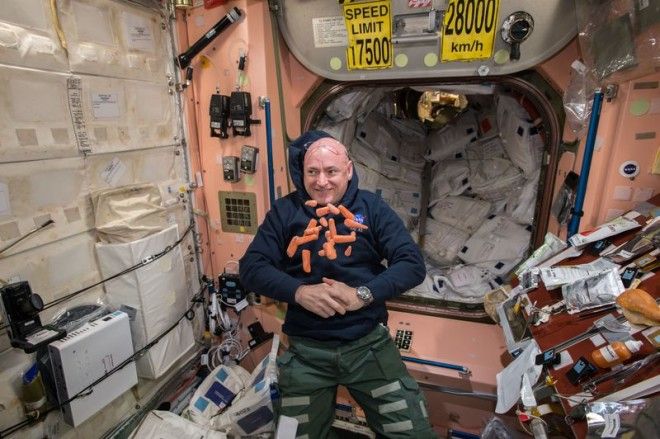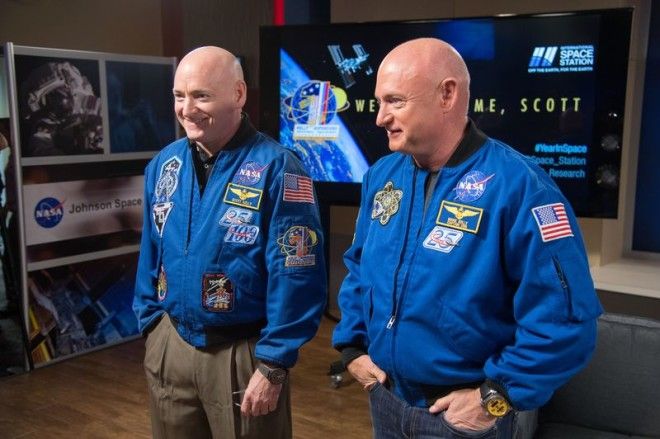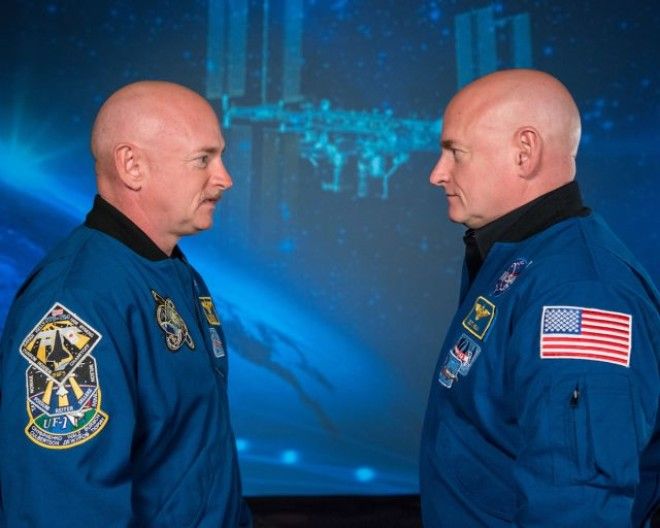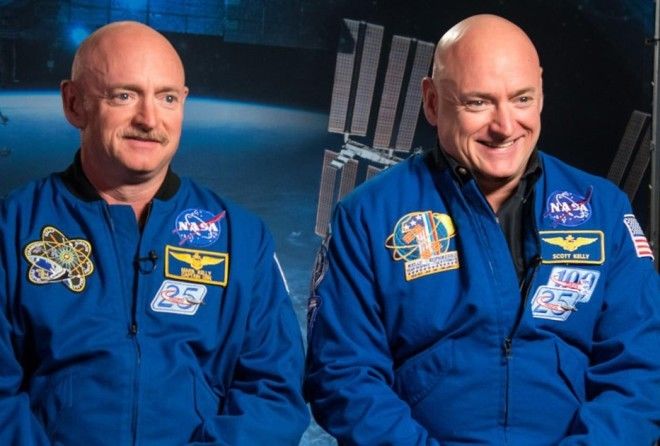The mistake stems from an inaccurate interpretation of NASA’s ongoing Twins Study. When Scott went to space in 2015, his identical twin Mark — also a former NASA astronaut — stayed on the ground. The idea was that Mark would serve as a control subject — a nearly identical genetic copy that NASA could use to figure out how the space environment changed Scott’s body.
THE MISTAKE STEMS FROM AN INACCURATE INTERPRETATION OF NASA’S ONGOING TWINS STUDY
Some fascinating results have come out of the experiment. For one thing, Scott’s gut bacteria changed significantly while he was in space. And yes, he did experience genetic changes. The protective caps on the ends of his DNA strands — known as telomeres — increased while in space. But space didn’t permanently alter 7 percent of his DNA.
A person’s DNA is their body’s genetic code — the pattern and sequence of genes that make up the blueprint for the body. When a person’s DNA is altered, that means the pattern of genes in their body’s cells has been rearranged in some way. Perhaps some genes swap with one another, parts of the genetic code are removed, or new parts are added to a DNA sequence. External forces, like ultraviolet radiation from the Sun or smoke from cigarettes, can cause DNA mutations.

Now, the Twins Study did find that Scott and Mark had “hundreds of unique mutations in their genome,” and some of these changes were found after Scott got back to Earth, according to NASA. Bits of DNA were found circulating freely in his blood. The space agency thinks that this might have been caused by the stresses of space travel. Or it could have happened before he went to space — NASA just didn’t catch it until later. Even so, mutations in DNA aren’t that weird. “Mutation occurs all the time, as people get older,” Dan Arking, an associate professor of medicine at Johns Hopkins, who did not work on the study, tells The Verge.
What’s causing the ruckus, though, is that NASA found a shift in the way that Scott’s genes were expressed. That’s an entirely different thing than seeing a change in a person’s DNA. Gene expression refers to how active a particular piece of DNA is. DNA produces little tiny messengers of information known as mRNA, which cells use to make proteins that carry out all of your body’s basic functions. Gene expression refers to how much mRNA a gene produces. So the DNA stays the same; it’s just behaving differently.
“TO HAVE 7 PERCENT OF HIS GENE EXPRESSION CHANGED AFTER THE SPACEFLIGHT DOES NOT MEAN THAT 7 PERCENT OF THE DNA CHANGED.”
Scientists studying Scott found that much of his gene expression changed while in space, and about 93 percent of his expression levels went back to normal when he got home. However, 7 percent of his genes related to the immune system, DNA repair, bone formation, and more were still a little out of whack when he returned. These genes are referred to as the “space genes,” according to NASA.
That’s still a cool result, but it doesn’t mean his genetic code is significantly different. “To have 7 percent of his gene expression changed after the spaceflight does not mean that 7 percent of the DNA changed, or that those changes were necessarily due to mutations,” Nichole Holm, a geneticist at UC Davis who did not work on the Twins Study, wrote to The Verge in an email.
And changes to gene expression are not that surprising. It happens all the time — even here on Earth. It’s a basic response to a person’s environment. “If you put someone into a stressful and different environment, they’re going to have gene expression changes,” says Arking. “If you go live at a high altitude for a long while, you’ll see gene

So where did all this miscommunication come from? The stories seem to stem from a January press release from NASA about preliminary results from the ongoing Twins Study. The wording of the release isn’t very clear, and to a layperson, it does read as if 7 percent of Scott’s genes were altered by space. There’s been a huge spike in search volume for this story over the last couple of days. Additionally, both Scott and Mark tweeted out these stories, claiming that they are no longer identical twins. But that’s not the case.
“The two are still very much identical twins,” Holm wrote. “They possessed different mutations before and after the flight, and Scott experienced different changes in his RNA, not DNA. But their DNA is still nearly identical and much more similar to each other than to any other person on earth (or in space).”
“THE TWO ARE STILL VERY MUCH IDENTICAL TWINS.”
NASA also confirmed this in a statement to The Verge: “Scott’s DNA did not fundamentally change,” a NASA spokesperson said. “What researchers did observe are changes in gene expression, which is how your body reacts to your environment. This likely is within the range for humans under stress, such as mountain climbing or SCUBA diving.”
Holm also says that it’s really hard to understand the nuance of what the researchers actually found. NASA has yet to release the results of this research in a peer-reviewed study. So all we have to go on are two press releases, one of which contains that confusing wording. That makes it easy for complicated science to get oversimplified. “I’m a skeptic by nature, so I like to see what’s the methodology they employed and the statistical rigor,” says Arking. “Presumably they’ve used the right approaches.”

NASA promises that more results will be released soon, though. “We are at the beginning of our understanding of how space flight affects the molecular level of the human body. NASA and the other researchers collaborating on these studies expect to announce more comprehensive results on the Twins Studies this summer.”

